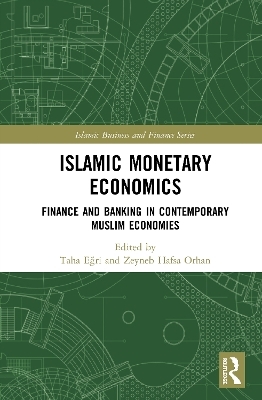
Islamic Monetary Economics
Routledge (Verlag)
978-0-367-65430-6 (ISBN)
The existence of fiat currencies has long been cited as one of the major contributing factors to the challenges facing contemporary economies, and the current monetary system is not only a key source of exorable increases in interest rates but also a principal cause of inflation and decline in the value of money in many countries. The editors argue that an Islamic monetary system, with its specific money concepts, interest-free financial institutions, and monetary policy embedded in real growth, provides a solution to this conundrum.
Contributions from many world-renowned experts consider a wide array of topics, ranging from the theoretical concepts of money and banking in conventional and Islamic economics to the historical journey of money from precious metals to plastic money and digital currency today. The book outlines the problems that sprout from interest-based banking and multiple debt structures. It then mirrors the Islamic concepts of money as well as idiosyncrasies of its monetary policy. Supported with meticulous research and empirical evidence, the book demonstrates the efficacy of Islamic monetary system in delivering real growth along with equitable distribution of wealth and prosperity in the economy. It additionally acquaints the readers with juristic debates about money and monetary policy.
This is essential reading for both students and researchers in Islamic economics, banking, and finance, expertly promoting a fair and just economic system that emerges as a result of interest-free banking and monetary policy based on Islamic principles.
Taha Eğri, PhD, is currently a research fellow at Kırklareli University, Turkey. He completed his BA at Bogazici University, Turkey, and obtained his MA and PhD degrees at Istanbul University, Turkey. He was a visiting scholar at George Mason University, USA, between 2014 and 2016. His primary research areas are institutional economics and international political economy. He is currently focusing on MENA countries’ economic policies, military-economic relations and Islamic economics. He is Director of the Research Center for Islamic Economics (IKAM), Istanbul, and the editor of two peer-reviewed journals. Zeyneb Hafsa Orhan, PhD, received her undergraduate degree on economics from Bahcesehir University, Turkey, and her master’s degree on international and European relations from Linköpings University, Sweden. Finally, she obtained her PhD degree on economics (with a thesis specializing in Islamic banks) from the International University of Sarajevo, Bosnia. After over eight years of international experience, she has been working at Istanbul Sabahattin Zaim University since the beginning of 2015. Currently she is an assistant professor in the Islamic Economics and Finance Department. Her current research areas include Islamic economics and finance, finance, and banking.
1. The Islamic Macroeconomic Model: How to Apply It? 2. Monetary Economics and Monetary Policy in Islamic Perspective: Focus on Contemporary Muslim Economies Aiming at Making their Economies Islamic. 3. Economic Analysis of Islamic Monetary Framework and Instruments. 4. Re-Examining Monetary and Financial Stability in a Modern Economy: Evidence from Turkey and Malaysia. 5. The Impact of External Shocks on the Dynamics of Macroeconomic Variables in Iran (Islamic Versus Conventional Monetary Rule) 6. The Problems with Fractional Reserve Banking and Proposing a Shariah Compliant Full Reserve Banking Model. 7. Monetary Policy and Islamic Banking: Key Challenges. 8. Impacts of Monetary Policy on Credit Supply of Islamic Banks: An Empirical Study of Pakistan versus Malaysia. 9. Cryptocurrencies from the Perspective of Islamic Economics: Discussions and Opportunities. 10. Contemporary Debates in Islamic Monetary Economics: A Retrospective Look.
| Erscheinungsdatum | 13.07.2022 |
|---|---|
| Reihe/Serie | Islamic Business and Finance Series |
| Zusatzinfo | 22 Tables, black and white; 39 Line drawings, black and white; 39 Illustrations, black and white |
| Verlagsort | London |
| Sprache | englisch |
| Maße | 156 x 234 mm |
| Gewicht | 526 g |
| Themenwelt | Sozialwissenschaften ► Soziologie ► Spezielle Soziologien |
| Wirtschaft ► Betriebswirtschaft / Management ► Finanzierung | |
| Betriebswirtschaft / Management ► Spezielle Betriebswirtschaftslehre ► Bankbetriebslehre | |
| Wirtschaft ► Volkswirtschaftslehre ► Finanzwissenschaft | |
| Wirtschaft ► Volkswirtschaftslehre ► Makroökonomie | |
| ISBN-10 | 0-367-65430-X / 036765430X |
| ISBN-13 | 978-0-367-65430-6 / 9780367654306 |
| Zustand | Neuware |
| Haben Sie eine Frage zum Produkt? |
aus dem Bereich


